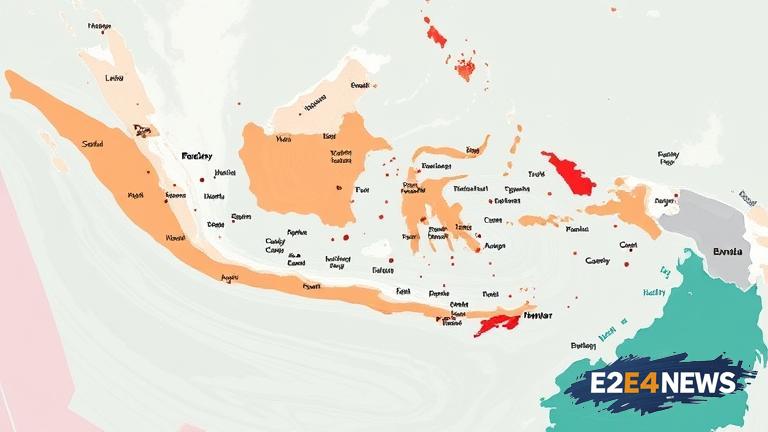The Indonesian government has strengthened its commitment to eliminating tuberculosis (TB) in 8 priority provinces, where the disease is most prevalent. This move is part of a broader effort to reduce the incidence of TB and improve public health outcomes across the country. According to recent data, TB remains a significant public health concern in Indonesia, with thousands of new cases reported every year. The government has identified 8 priority provinces, including Papua, West Papua, East Nusa Tenggara, West Nusa Tenggara, Maluku, North Maluku, Central Sulawesi, and Gorontalo, where TB prevalence is highest. To tackle the issue, the government has launched a comprehensive program to strengthen health services, improve diagnostic capabilities, and enhance treatment outcomes. The program includes training for healthcare workers, upgrading of healthcare facilities, and increasing access to TB diagnosis and treatment. The government has also partnered with international organizations, such as the World Health Organization (WHO), to support the implementation of the program. Furthermore, the government has increased funding for TB control efforts, with a focus on improving health infrastructure and expanding access to healthcare services. The program also includes community-based initiatives, such as awareness campaigns and outreach programs, to educate the public about TB prevention and treatment. In addition, the government has established a national TB control committee to oversee the implementation of the program and ensure coordination among stakeholders. The committee is responsible for monitoring progress, identifying challenges, and developing strategies to address them. The government’s efforts to eliminate TB in the 8 priority provinces are aligned with the global End TB Strategy, which aims to reduce TB incidence by 80% and TB-related deaths by 90% by 2030. Indonesia has made significant progress in reducing TB prevalence in recent years, but more needs to be done to achieve the global targets. The government’s commitment to eliminating TB in the 8 priority provinces is a crucial step towards achieving this goal. The program is expected to have a significant impact on public health outcomes, particularly in the priority provinces, where TB prevalence is highest. By strengthening health services and improving access to TB diagnosis and treatment, the government aims to reduce the incidence of TB and improve treatment outcomes. The program is also expected to have a positive impact on the economy, as a healthier workforce is more productive and contributes to economic growth. Overall, the Indonesian government’s efforts to eliminate TB in the 8 priority provinces are a significant step towards improving public health outcomes and achieving the global End TB Strategy targets. The government’s commitment to this cause is a testament to its dedication to protecting the health and well-being of its citizens. With the support of international organizations and the private sector, Indonesia is well on its way to achieving its goal of eliminating TB. The program is a shining example of what can be achieved through collaboration, determination, and a commitment to improving public health outcomes. As the program continues to roll out, it is expected to have a lasting impact on the health and well-being of the Indonesian people. The government’s efforts to eliminate TB are a crucial step towards achieving the Sustainable Development Goals (SDGs), particularly SDG 3, which aims to ensure healthy lives and promote well-being for all. By working together, Indonesia can overcome the challenges posed by TB and create a healthier, more prosperous future for its citizens.
